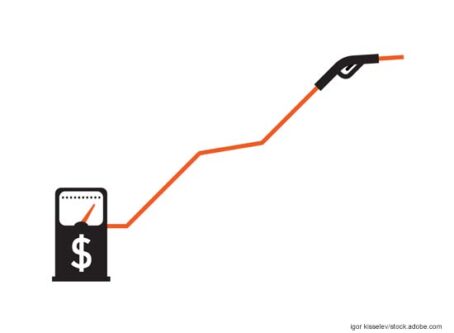New Jersey fuel tax rates set to increase Oct. 1
The fuel tax rates in New Jersey are once again set to increase. Effective Oct. 1, a 4.3-cent rate increase will be imposed.
State officials say the upcoming increase is needed because tax revenues have fallen below projections from 2016. At that time, state lawmakers voted and then-Gov. Chris Christie signed into law a bill to nearly triple the state’s gas and diesel rates.
The changes were touted to raise nearly $2 billion per year to support the nearly-depleted Transportation Trust Fund.
On Nov. 1, 2016, the gas rate was increased from 14.5 cents to 37.5 cents. Two months later, on Jan. 1, the 17.5-cent diesel rate increased to 36.5 cents. An additional 8-cent increase in the diesel rate was imposed on July 1, 2017, to reach a total of 44.5 cents.
Democratic legislative leaders and the then-Republican governor attached multiple tax breaks to help counter the fuel tax increases.
Specifically, the state’s 7 percent sales tax rate was trimmed by three-eighths percent over two years. The estate tax also was abolished. Veterans and retirees also got tax breaks. In addition, the earned income tax credit was increased.
In all, the tax breaks were touted to save taxpayers $1.4 billion.
This fall’s increase in fuel rates will bring the taxes for gas and diesel to 41.8 and 48.8 cents, respectively.
The tax rate adjustments from two years ago were dubbed as necessary to help the trust fund get out of debt. At that time, all fuel tax revenue was applied to debt service.
New Jersey law no longer ties the tax rates to the price of fuel. Instead, the tax rates are based on consumption.
The 2016 law includes a provision that the state treasurer increase the tax rate each year to ensure it brings in revenue needed to pay the bills for transportation work.
State officials say since the 2016 tax increases took effect fuel consumption in the state has declined. The change is attributed to out-of-state drivers who no longer buy as much fuel in the Garden State because the price difference to neighboring states was eliminated.
Slowing fuel sales has resulted in the state losing ground on revenues available to pay off continuing debt. In less than two years, state estimates put the loss of revenue for the Transportation Trust Fund at nearly $170 million.
Advocates say the Oct. 1 price increase is necessary to counter the loss of fuel sales.









